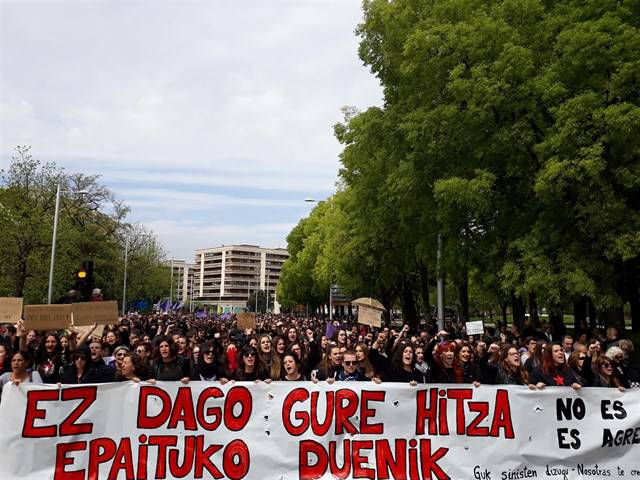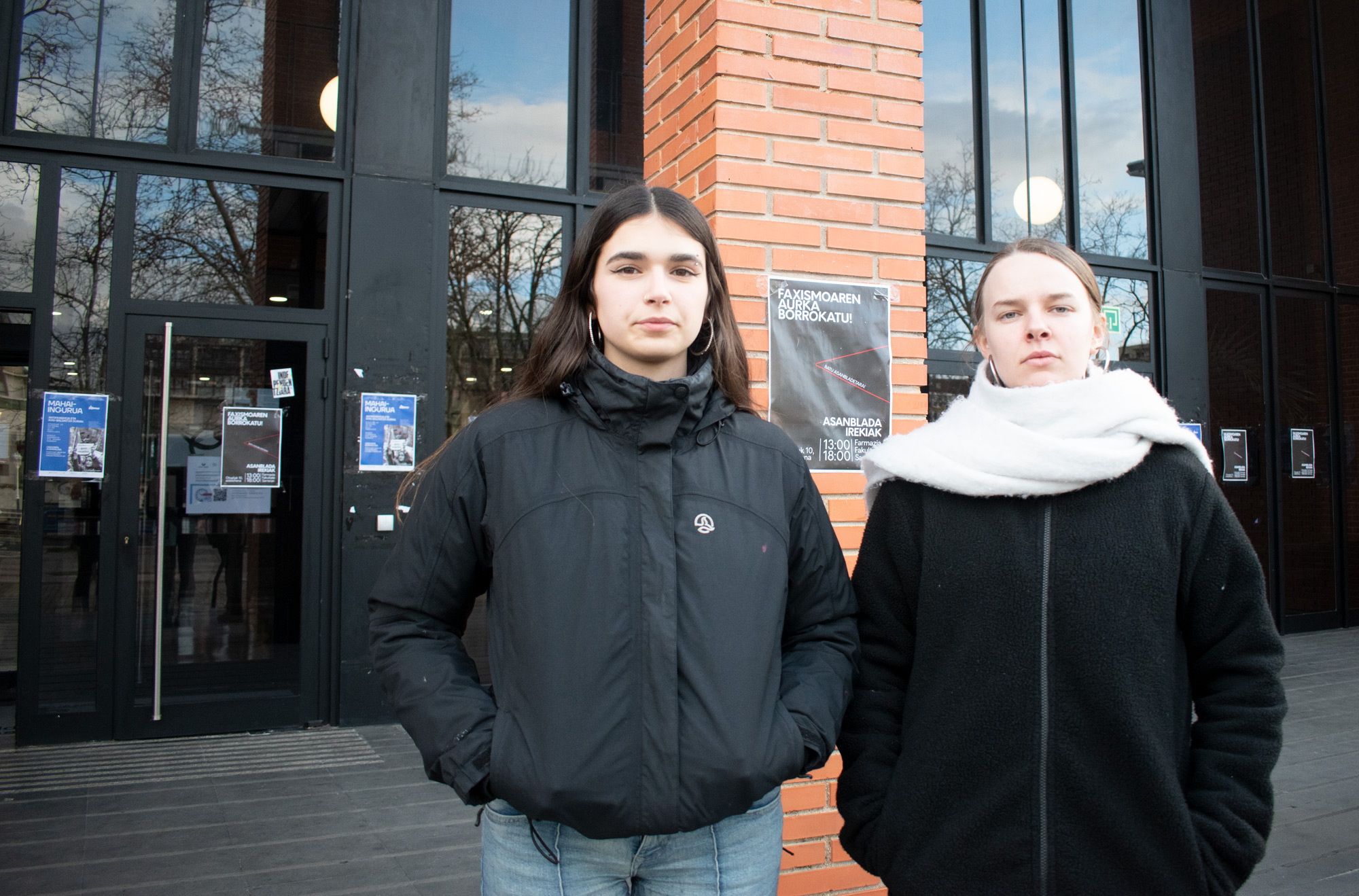The family, the strength of silence
- Violence against minors has multiple faces. However, to the extent that they are the most vulnerable subjects of the patriarchal system, they have their own characteristic: what they suffer occurs and is kept secret, since the aggressors are, in most cases, relatives of them. Saioa Iraola, by Bilgune Feminista, and Aitziber Bañuelos, pedagoga de Eraikiz, have told us that this silence cannot distort reality. Children who suffer violence are not one or two, each and every one of us has a victim around them, even an aggressor. And that scares us, encourages us not to confuse, when it's essential to talk about it to solve the problem.

Bilgune Feminist from Euskal Herria has addressed this complex issue because boys and girls are the most vulnerable subjects of the patriarchal system and victims of violence that occurs and remains hidden, to extend the debate to the public sphere and seek solutions. In the words of the group, it is important to break the agreements of silence that arise in these situations: “To do this, vulnerable individuals who have had a life full of suffering must be made visible. The first step is to give children the status of subject, voice and credibility.” Saioa Iraola Urkiola, a member of the group, has explained that when children take the step of making the problem public, we often do not believe them: “Their word is not taken into account and it is argued that they are fantasies and inventions of children, as the aggressor is often the family or their environment.”
In the patriarchal system, the hegemony of power is mature, male and heterosexual; and the main tool to maintain it is violence in multiple ways,” says Bilgune Feminista. “Thus, the monopoly of violence is held by adult men (usually husbands, fathers, uncles, older siblings, grandparents) and those who suffer this are, above all, subjects in a situation of social vulnerability: women and children.” Iraola has stated that the strength of this violence, as the data show, is the family. “This family structure and its closest network are, in most cases, the secret refuge of these terrible realities, and an example of this is that we will clean the dirty rags at home.”
Sexual assaults in the city center
In the words of Bilgune’s member, “the pillars of the multiple variants of violence are closely linked to the processes of socialization within the patriarchy”. And to this is linked the construction of sexuality that sustains the hegemony of mature and heterogeneous man: “Men can freely use the different bodies of the environment for their enjoyment and benefit; an example of this is sexual assault, rape, sexist advertising, child hypersexualization or pornography.”
In addition, Bilgune Feminista has denounced the cultural, social and symbolic violence that spans all children in their daily lives (more subtly), to the extent that the life trajectory of children and adolescents is full of rape: “In this society, all boys and girls suffer the separation of gender roles from the moment they are born and throughout their socialization process receive the binomial model rigidly and rigorously”.
Bilgune Feminist has highlighted the sexist aggressions despite the recognition of all the violence, “which are a daily reality in our society”. The subject is very sensitive and it is not easy to find data. The lack of information and existing official studies have become obsolete. According to the report of Dr. Félix López, carried out in 1994 at the request of the Spanish Ministry of Social Affairs, “studies carried out in Canada, the United States and several countries of the European Union, including the Spanish State, show that 23-25% of girls under 17 years of age and 10-15% of boys have suffered sexual abuse. And that 70-80% of these attacks have occurred in the family environment or in the child’s trust.”

Pact of silence
Violence against children is a consequence of many of the characteristics of the patriarchal system: family model, sexualization of bodies, social silence and complicity, patriarchal figure, adult dominance, etc. All of them are, among others, the main causes of the shortage of data, studies and readings. In the same vein, the silence of the victims is due to the fear, shame, feeling of guilt, the pact of silence or the strength of the family model.
On the other hand, street people "are afraid of the truth," and do not ask for more information or more studies. Politicians, aware of this, often look “the other way” to shirk responsibilities. According to Bilgune Feminist, “the first step in solving a problem is to recognize and accept; society needs to open its eyes to overcome fear and taboo around this issue.”
In the reading extracted from the collective process of elaboration and reflection, they have made it clear that this is a theme with a broad and plural dimension. “Patriarchal violence against children has many edges, beyond physical aggressions, physical and emotional irresponsibility, psychological aggressions, sexual abuse or witnessing the violence suffered by their mother.” They have denounced, “in the latter case the law has obvious gaps, as children who live in situations of domestic violence are not considered direct victims”. According to experts, this type of violence has side effects on children and, in many cases, can produce psychological illnesses, aggression or nervousness.
As the feminist organization warns, “the very structure of the judicial system is patriarchal and cases are analyzed according to their conditions. In general, judges are men, and the child's word has no weight, as there is often no clear evidence. In general, the witness is usually the mother of the child and his or her word is often questioned, arguing for manipulation.”
Most cases are archived
This is very common in the case of sexual abuse. “To begin with, most of the complaints do not reach the courts and the few who succeed will have to face a path full of obstacles and, as has happened in some cases, with the risk of their sons and daughters being taken away from them.” Iraola added that, given the slowness of the proceedings, an extraordinary lawyer is often needed for the case to continue and many cannot continue due to lack of financial means. “In short, the complaints that reach the courts usually have a short judicial route, as most cases are filed.”
Bilgune Feminist has recalled the extreme example experienced earlier this year in the Alavesa capital. Her mother's partner, Alicia, murdered her 17-month-old daughter after sexually abusing the girl by pulling her across the balcony. “The Basque Government itself has not qualified or recognized it as sexist violence. In addition, since the adoption of the law of shared custody, in most of the separations decided in the courts, the situations of sexist violence are not taken into account and the regime of visits to the aggressors is maintained”, denounces the association.
Responsibility of all
Iraola told us that the reading by Bilgune Feminist on the occasion of November 25, Day against violence against women does not start from scratch. “Psychologists, lawyers, educators and associations have been working for some time, but from Bilgune we want to make our contribution because we know that the issue is a hidden issue. Our goal is to bring violence against children to the forefront and generate a public debate: to start talking about the terrible experiences that we have in our midst for fear of sharing, visibilizing and approaching the different hidden realities; in short, to break the agreements of silence that allow the survival of this system of hidden violence”.
They say that the political reading they have made is the starting point for deepening this issue: “We have to be aware of our responsibility as an adult society. We demand the involvement and responsibility of the political and judicial authorities, but also the cooperation of the whole of society. Therefore, it is essential to work feminist self-defense since childhood and to continue working for a co-educational and feminist educational model”.
Aitziber Bathers, member of the collective Eraikiz
"We're afraid to find victims or aggressors in our family, so we don't talk about it."

“The family is a space of vulnerability, especially for those groups that have difficulty defending their rights. And the weakest in that sense are the children. If you add to that other factors, functional diversity or mental illness, imagine...”. / Jon Torner
The collective Eraikiz works in the field of social intervention. We met at the headquarters of Bilbao with the educator and pedagogue Aitziber Bañuelos, with the objective of making visible the violence against children, about to organize a conference and publish a report. During his exhibition he has made numerous paper drafts, writing “patriarchal system” in the center and placing the pen on the word “family”.
Most cases of violence against children occur in the family environment.
All systems use violence to weave relationships, and the family is no exception. It is a space of helplessness, impunity and vulnerability, with values very difficult to break and that forces you to love your relatives without any condition. As with male violence in the case of violence against children, this is also important, because when the people who hurt us are the ones we love most, the defense mechanisms are broken at the root. The violence of the closest generates the most traumas, as it entails a huge loss of trust: If those who hurt me are the ones who should protect me, who will I trust? The cruelest is violence within the family.
The cruelest and most difficult thing to see…
Yes, that's why it's impunity. Dirty rags are cleaned at home, we think we have no right to enter anyone's house. In addition, the families of others are a mirror for us. When we see that something bad is happening in the neighborhood, we feel that it can happen in ours and we are afraid. That fear leads us to find the victims or the aggressors, not to put their nose in the homes of others.
Violence against children is often hidden, not detected, let alone denounced. Machista violence is gradually emerging, the feminist movement has taken steps, women have come together and raised their voices. However, children are not able to develop a theory and meet in a group, someone has to do it for them: adults. It is precisely the adults who refer to them that often hurt them. Attackers they should protect. It's a very complicated issue. And if you add sexuality to that, it's over.
Are you talking about sexual assaults?
Yes, but before I address this, one thing: Children are the direct victims of violence suffered by their mothers. Violence does not necessarily mean blows or insults, it doesn't have to be physical or verbal. The growth of minors in an environment of violence presupposes a climate of struggle, disillusionment and lack of communication. And the lack of communication sometimes maintains a high degree of violence, as there is no more harmful violence than incommunication.
Any violence that is not evident is more difficult to identify and its impact is more negative, especially for those who are not able to distinguish things. If a child sees the person who loves the most hurt, the other person who loves the most… He is not able to distinguish good from evil, and what he is learning receives him especially at home. Children are the direct victims of violence against women. To say the opposite would undermine the importance and increase the lack of protection and vulnerability of children.
As for sexual assaults, they are more patriarchal than the Sexists, since the victims are boys and girls, but almost all the aggressors are men and close ones, father, grandfather, uncle... It is true that, according to the data, there are more girls among the victims, but the differences are not large enough to say that the child gender is a risk factor. According to published research, in the first years of children's lives, one in seven boys and one in five girls suffer from sexual abuse. As age progresses, there are more girls.
One in seven and five, that's a lot.
17 per cent of children have been sexually abused by their parents. The point is that in real time, while the victims are being assaulted, 2% of all cases are detected, of which only 1% is denounced because the relatives decide to keep them secret. Therefore, it is difficult to talk about profiles, since 98% of us are unknown. But most studies agree: Almost 20 per cent of children have suffered some sexual assault at some point in their lives.
It’s hard for us to believe…
They are invisible and remain secret. And what's the best thing to break the silence? Talk. Have you not been told by anyone in your environment that you were sexually abused as a child? We all have some case around us. It's common. But even the question is scary to us. If tomorrow you are told by the best friend who suffered sexual abuse, you will fall backwards. What if she tells her that she abused her daughter? You will vomit in the bathroom, but not so much for nausea, but for the scare. "What the hell am I going to do now? “Some victims have told us hard things that we don’t see in the movies. And we feel fear, fear of the victims being close, fear of the aggressors being close.
And how do we deal with all of this?
It is essential that you show that you believe what you have been told and that it seems very important to you. And another thing: sexual abuse has no irreparable consequences. As with all ill-treatment, one can learn to live with them, as one must not forget.
We adults, if we want to detect them, need to look closely around us so that we can react when something squeaks. We must also teach children to set limits, to know their bodies and emotions and to develop their capacities for psycho-social development. But the child cannot prevent sexual abuse. To say the opposite would be to regard those children as guilty. It must be explained to the victim that she could not prevent what happened, because in many cases there is no violence, but manipulation. When it is a special person for him who does, it is also difficult to understand what is going on and you may enjoy or participate in sex because you do not know with whom you practice sex. This doesn't mean that boys and girls can't detect, and communicate, behaviors they don't like, but when there's an affective relationship, their defenses go down completely.
On the other hand, it is essential that all actors work together: justice, education, administrations, ethics experts (for example), associations that we intervene with the victims, who promote participation… and you, the media.
Any recommendations?
Do not generate social alarm or dramatize. We hear frequently: “The child who has been raped.” No, take out that “sick”, please. She's been raped, nothing else. We need to think about how we empower these people through the news. The victim does not need to read “the sick you”, but to say: I recognize you as a victim, I believe you, and I share your message: this must be done away with.
Hezkuntza-esparruan haur eta nerabeek jasan ditzaketen erasoen aurrean profesionalek nola jokatu behar duten azaltzen duen protokolo berria jarriko du martxan Eusko Jaurlaritzako Hezkuntza, Hizkuntza Politika eta Kultura Sailak. Dokumentu horren helburu nagusia arriskuak garaiz prebenitu eta detektatzea da.
Bestalde, Iruñeko Andrea elkarteak emozioak eta sentimenduak ezagutu eta gidatzeko pintura tailerra antolatu du, indarkeria patriarkala jaso duten 6-14 urte bitarteko haurrentzat.
Elizak 23 kasu ditu onarturik Nafarroa Garaian. Haiek "ekonomikoki, psikologikoki eta espiritualki laguntzeko" konpromisoa adierazi du Iruñeko artzapezpikuak.
15 urteko emakume bati egin dio eraso Izarra klubean jarduten zuen pilota entrenatzaile batek.
Lestelle-Betharramgo (Biarno) ikastetxe katolikoko indarkeria eta bortxaketa kasuen salaketek beste ikastetxe katoliko batzuen gainean jarri du fokua. Ipar Euskal Herriari dagokionez, Uztaritzeko San Frantses Xabier kolegioan pairaturiko indarkeria kasuak azaleratu dira... [+]
Bi neska komisarian, urduri, hiru urtetik gora luzatu den jazarpen egoera salatzen. Izendatzen. Tipo berbera agertzen zaielako nonahi. Presentzia arraro berbera neskek parte hartzen duten ekitaldi kulturaletako atarietan, bietako baten amaren etxepean, bestea korrika egitera... [+]
Martxoak 8a heltzear da beste urtebetez, eta nahiz eta zenbaitek erabiltzen duten urtean behin beren irudia morez margotzeko soilik, feministek kaleak aldarriz betetzeko baliatzen dute egun seinalatu hau. 2020an, duela bost urte, milaka emakumek elkarrekin oihukatu zuten euren... [+]
Neska adingabeari sexu abusuak era jarraituan egin zizkiola frogatutzat jo du Bizkaiko Lurralde Auzitegiak.
1989tik 2014ra, Frantzia mendebaldeko hainbat ospitaletan egindako erasoengatik epaituko dute. 74 urte ditu Joel Le Scouarnec zirujau ohiak, eta espetxean dago beste lau sexu eraso kasurengatik.
Lau mila karaktere ditut kontatu behar dudana kontatzeko. Esan behar ditut gauzak argi, zehatz, soil, eta ahalko banu polit, elegante, egoki. Baga, biga, higa. Milimetrikoki neurtu beharra dut, erregelaz markatu agitazioa non amaitzen den eta propaganda non hasi. Literarioki,... [+]
We learned this week that the Court of Getxo has closed the case of 4-year-old children from the Europa School. This leads us to ask: are the judicial, police, etc. authorities prepared to respond to the children’s requests? Are our children really protected when they are... [+]









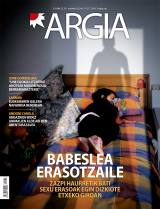

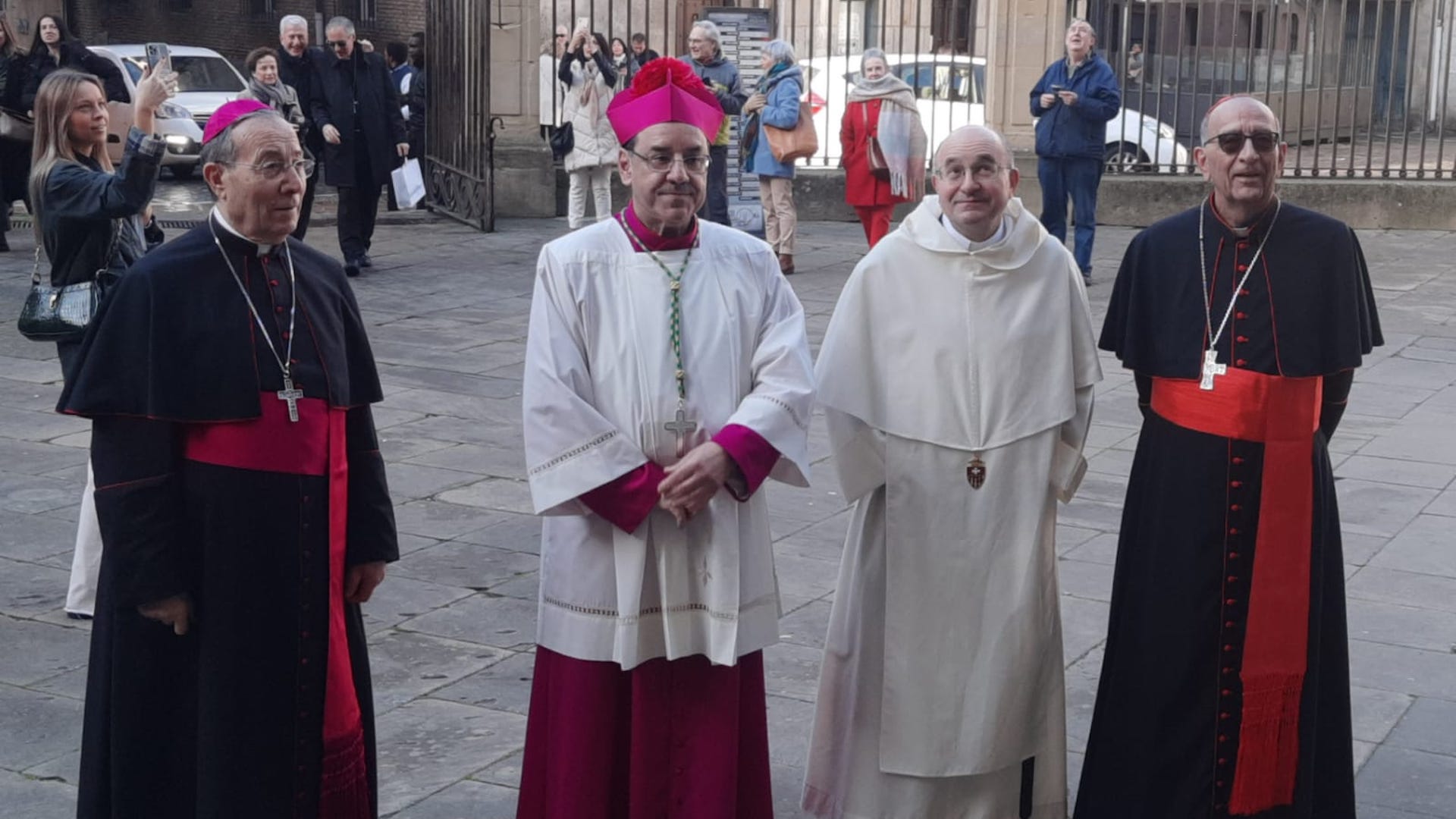

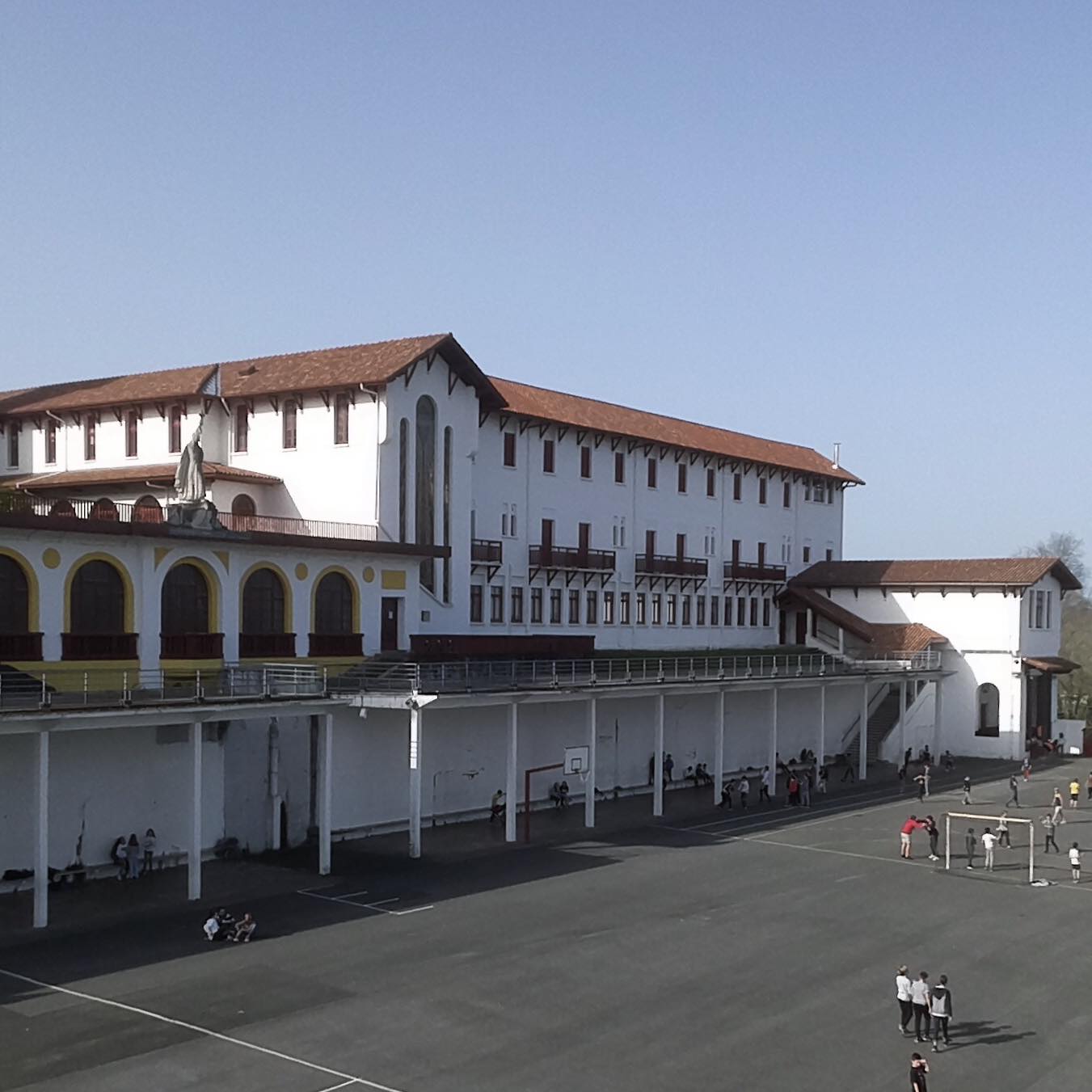

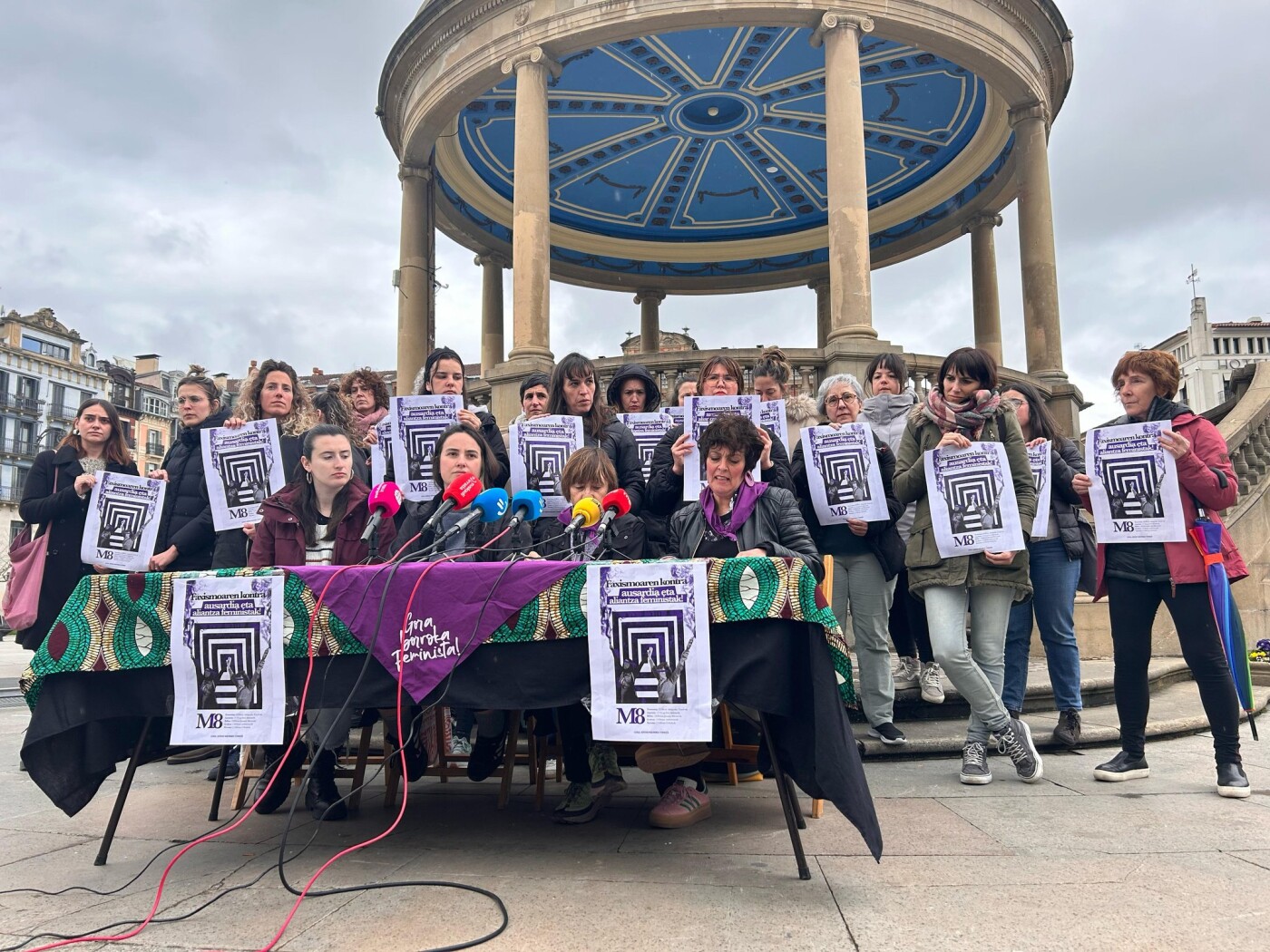



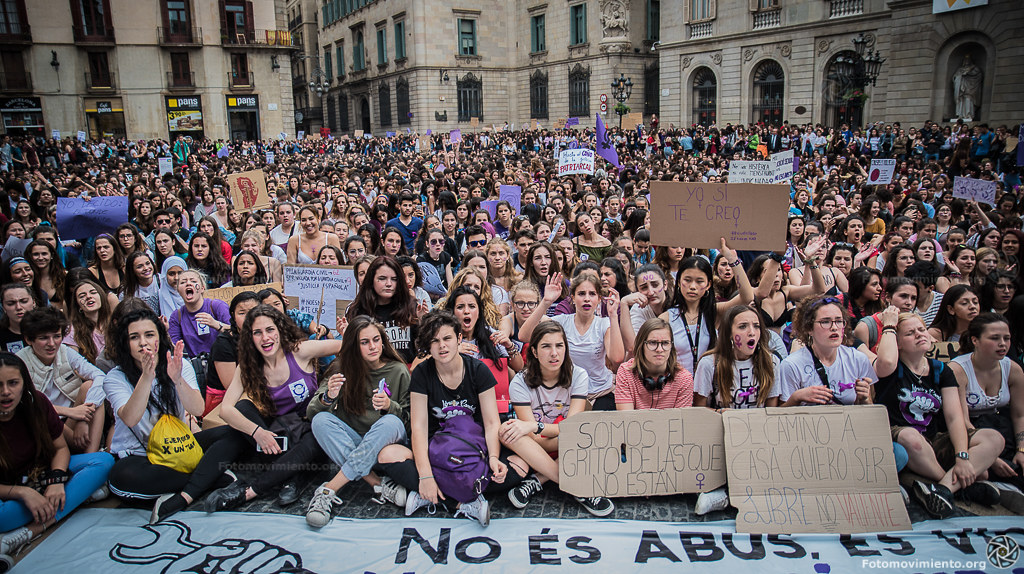
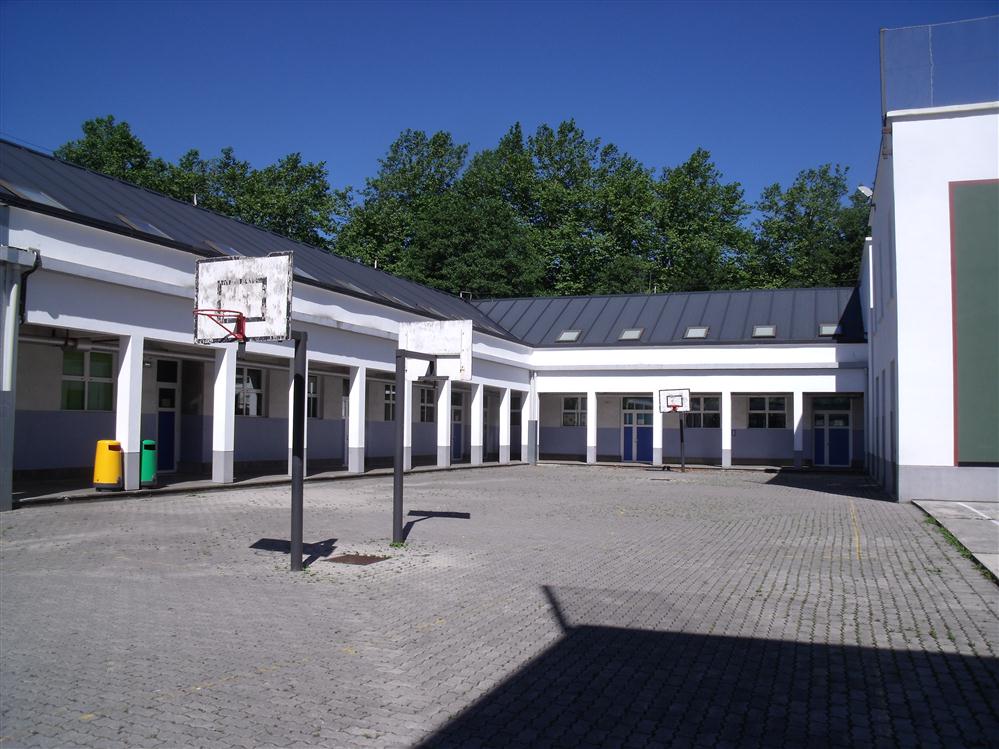
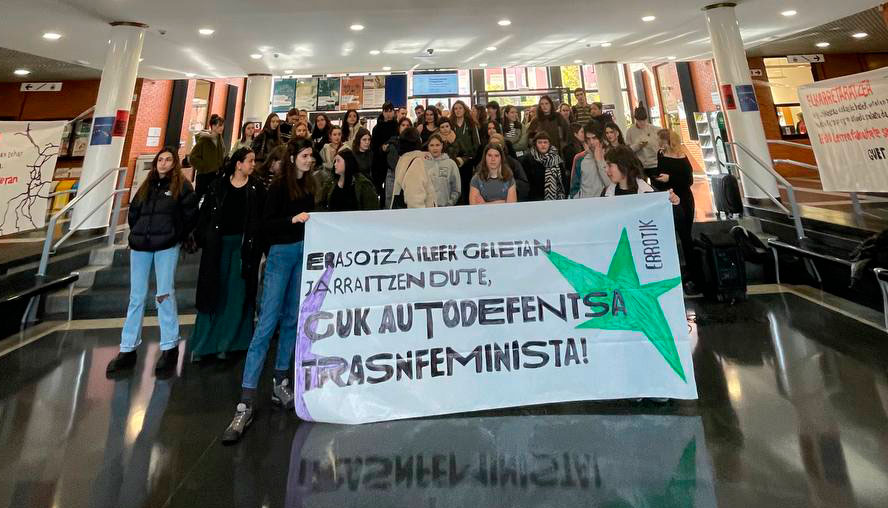
_2.jpg)
